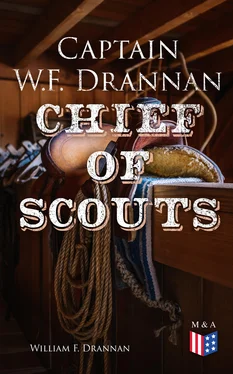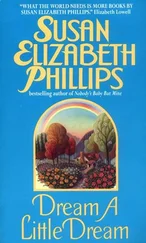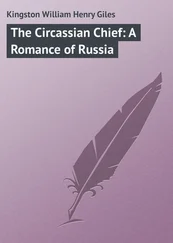William F. Drannan - Captain W.F. Drannan – Chief of Scouts
Здесь есть возможность читать онлайн «William F. Drannan - Captain W.F. Drannan – Chief of Scouts» — ознакомительный отрывок электронной книги совершенно бесплатно, а после прочтения отрывка купить полную версию. В некоторых случаях можно слушать аудио, скачать через торрент в формате fb2 и присутствует краткое содержание. Жанр: unrecognised, на английском языке. Описание произведения, (предисловие) а так же отзывы посетителей доступны на портале библиотеки ЛибКат.
- Название:Captain W.F. Drannan – Chief of Scouts
- Автор:
- Жанр:
- Год:неизвестен
- ISBN:нет данных
- Рейтинг книги:4 / 5. Голосов: 1
-
Избранное:Добавить в избранное
- Отзывы:
-
Ваша оценка:
- 80
- 1
- 2
- 3
- 4
- 5
Captain W.F. Drannan – Chief of Scouts: краткое содержание, описание и аннотация
Предлагаем к чтению аннотацию, описание, краткое содержание или предисловие (зависит от того, что написал сам автор книги «Captain W.F. Drannan – Chief of Scouts»). Если вы не нашли необходимую информацию о книге — напишите в комментариях, мы постараемся отыскать её.
Captain W.F. Drannan – Chief of Scouts — читать онлайн ознакомительный отрывок
Ниже представлен текст книги, разбитый по страницам. Система сохранения места последней прочитанной страницы, позволяет с удобством читать онлайн бесплатно книгу «Captain W.F. Drannan – Chief of Scouts», без необходимости каждый раз заново искать на чём Вы остановились. Поставьте закладку, и сможете в любой момент перейти на страницу, на которой закончили чтение.
Интервал:
Закладка:
In a few moments they were upon us. As we were out on an open prairie, we had a good sight of the Indians before they reached us; I saw by the leader's dress that it was a chief that was leading them. His head dress was composed of eagles' feathers, and he rode some thirty or forty yards ahead of the other warriors. When in gun shot of me I fired at him and brought him down. When he fell from his horse the rest of the Indians wheeled their horses and fled, but the chief was the only one that fell. As soon as they were gone I took the scalp off the dead chief's head. When we went into camp that evening, Jim told the emigrants what a great thing I had done in shooting the chief. "There is no knowing how many lives he saved by that one shot in the right time."
Then all the emigrants gathered around me to see the scalp of the Indian; they had never seen such a sight before; each of the young ladies wanted a quill from the Indian's head dress; and they asked me what I would take for one of them; I told them the quills were not for sale.
At this time the lady who had invited Jim and me to eat with her so many times came up to us, and she said, "Girls, I can tell you how you can get these quills." They all asked at once, "How is that, aunty?"
"Each one of you give him a kiss for a quill," she laughed, and of all the blushing I ever saw the young girls that surrounded me beat the record. Jim grinned and said, "I'll be dog goned if I don't buy the scalp and the feathers and take all the kisses myself."
This made a general laugh. I told Jim that he was too selfish, and that I would not share the kisses with him, that I would give the scalp to him and the feathers to the elder lady, and she could divide the feathers among the girls. The girls clapped their hands and shouted, "Good! good!"
Jim said that was just his luck, he was always left out in the cold.
In a few days we were on the top of the Sierra Nevada mountains. We told the emigrants that they were entirely out of danger and did not need our services any longer, so we would not put them to any more expense by going further with them. As this was Saturday evening the emigrants proposed going into camp until Monday morning and that Jim and I should stay and visit with them. We accepted the invitation, and Sunday was passed in pleasant converse with these most agreeable people, and I will say here that of all the emigrants I ever piloted across the plains none ever exceeded these men and women in politeness and good nature, not only to Jim and me, but to each other, for through all that long and trying journey there was no unkindness shown by any of them, and if we would have accepted all the provisions they offered us it would have taken a pack train to have carried it through. Every lady in the train tried to get up some little extra bite for us to eat on the way back. The reader may imagine our surprise when Monday morning came and we saw the amount of stuff they brought to us. Jim said, "Why ladies we haven't any wagon to haul this stuff, and we have only one pack horse and he can just pack our blankets and a little more. Besides, we won't have time to eat these goodies on the road. Supposing the Indians get after us? We would have to drop them and the red skins would get it all."
We now packed up and were ready to put out. We mounted our horses, bid them "good bye" and were off.
Nothing of interest occurred until we got near Green river. Here we met Jim Beckwith and Bob Simson. Jim Bridger and I had just gone into camp when they rode up. After they had shaken hands with us Jim Beckwith said, "Boys, you are just the parties we are looking for."
Bridger asked Beckwith what he had been doing and where he had been since we parted at Bent's Fort last spring. Beckwith replied that he had been with a train of emigrants just now who were on the way to California, and they had camped over on Black's Fort. The cholera had broken out among them soon after they crossed the Platte River, and from then up to yesterday they had buried more or less every day. There had been no new cases since yesterday, and they were laying over to let the people rest and get their strength, and they expected to start out tomorrow morning, and turning to me Beckwith said, "Will, I want you to go with us for there is another train of emigrants over on the Salt Lake route."
At this time there were two routes between the Green river and the Humboldt; one by the way of Salt Lake and the other by Lander's Cut off. Beckwith said, "Those emigrants going by the Salt Lake route have no guide, and I am afraid when they strike the Humboldt they will all be massacred, for they will be right in the heart of the Pi-Ute country, and you know this tribe is on the war path, and I want you to go on and overtake them and see them safely through, or else stay with this train and I will go myself and take care of them. We want the two trains to meet at the mouth of Lone Canyon, and then we will go up Long Canyon to Honey lake and then cross the Sierra Nevada."
I turned to Jim Bridger and said, "Jim, what do you think of this proposition?"
Jim said he thought it a good thing for me to do; the responsibility would give me more confidence in myself. "You know, Will, you have always depended on Carson or me at all times, and this trip will teach you to depend on yourself."
I saddled my horse and went with Beckwith back to the emigrants' camp. It was arranged that I was to take charge of the scouts and Simson to take charge of the other train, and Beckwith would go on and overtake the other train, and the train that reached the mouth of Long Canyon where it empties into Truckey river first must wait for the other train.
At this point the two trails divided, one going up the Truckey by the Donna lake route and the other up Long Canyon by Honey lake, the latter being considered the best route.
The next morning we pulled out. I had good luck all the way through, having no trouble with the Indians, arriving at Long Canyon three days ahead of Jim Beckwith.
In my train there was an old man with his wife and a son and daughter; they seemed to be very peculiar dispositioned people, always wanting to camp by themselves and having nothing to say to any one. When we reached Long Canyon, Simson told the emigrants that we would wait until the other train arrived, which news greatly pleased the most of them, but the old man and his family seemed to be all upset at the idea of laying over, and the next morning they harnessed up their horses. While they were doing this, Simson called my attention to them and said, "Let's go and see what they mean."
I asked the man what he was going to do with his team. He replied that he was going to hook them to the wagon and was going to California. I said, "You certainly are not going to start on such a journey alone, are you? You are liable to be all killed by the Indians before you get twenty miles from here."
The old man shrugged his shoulders and said, "Why, gol darn it, we hain't seen an Injin in the last three hundred miles, and I don't believe there is one this side of them mountains," and he pointed towards the Sierra Nevada mountains. "And if we did meet any they wouldn't bother us for we hain't got much grub, and our horses is too poor for them to want."
I told him, he must not go alone, the road was too dangerous, and besides the other train might come at any moment, and then we could all pull out in safety. He said, "I own that wagon and them horses, and I own pretty much every thing in that wagon and I think I will do just as I please with them." I insisted on his waiting until the other train came up, he said, he would not wait any longer, that he was going to go right now. I left him and walked back to the camp; I asked the men if any of them had any influence with that old man out there.
"If you have for god's sake use it and persuade him to not leave us, for if he starts out alone he, nor any of his family will reach Honey lake alive."
Читать дальшеИнтервал:
Закладка:
Похожие книги на «Captain W.F. Drannan – Chief of Scouts»
Представляем Вашему вниманию похожие книги на «Captain W.F. Drannan – Chief of Scouts» списком для выбора. Мы отобрали схожую по названию и смыслу литературу в надежде предоставить читателям больше вариантов отыскать новые, интересные, ещё непрочитанные произведения.
Обсуждение, отзывы о книге «Captain W.F. Drannan – Chief of Scouts» и просто собственные мнения читателей. Оставьте ваши комментарии, напишите, что Вы думаете о произведении, его смысле или главных героях. Укажите что конкретно понравилось, а что нет, и почему Вы так считаете.












